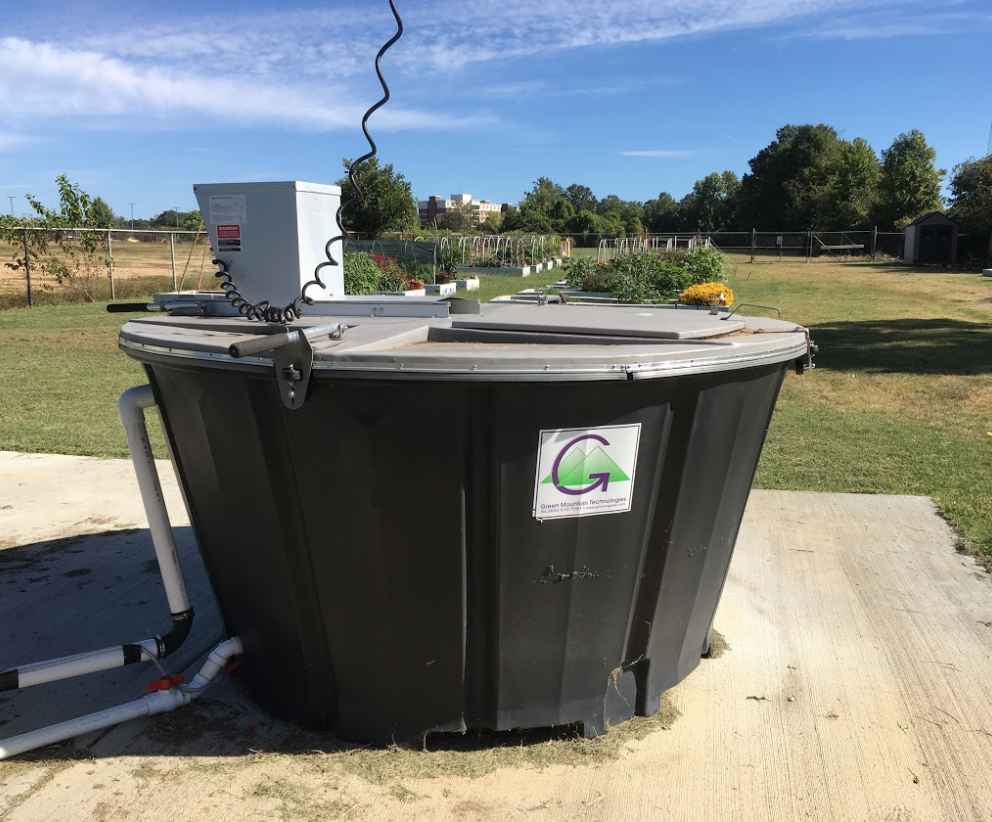Winthrop University used a grant of $25,000 from the City of Rock Hill to pay for a composter two years ago with the hopes of being able to compost food scraps from Thomson, the university’s dining hall, in order to limit food waste. However, after two years of sitting in the Rock Hill Community Garden, the composter has barely been used in regards to composting food waste.
While this seems as though the compost is being put to waste, things seem to finally be moving along. Due to Winthrop’s sustainability department and environmental studies student Alexzondrea Harrison putting pressure on Sodexo to transfer food scraps to the composter, the food company has officially started to make plans to make use of the composter by composting vegetable scraps.
Harrison met with Sodexo Tuesday, April 9 to discuss their plans regarding using Winthrop’s composter in the near future.
“Sodexo plans to start using the composter in the next spring/fall semesters and only using vegetable scraps. They are very excited to start using the composter soon. On this coming Monday we are doing a test run on the composter to see if everything is working well,” Harrison said.
The reason Winthrop has made this recent push to begin composting food waste is because it greatly benefits the environment. Studies have shown that composting can divert as much as 30 percent of household waste away from ending up in landfills. This could possibly prove true for Winthrop’s food waste in Thompson Hall. If Winthrop and Sodexo are able to work together to ensure the composting of vegetable scraps, it could reduce a large chunk of Thompson’s food waste from ending up in a landfill.
The composting of food waste will also be beneficial to Rock Hill’s Community Garden (where the composter is located). The food waste that is composted can be used in the soil of the garden which would in turn act as a natural way to break down organic material for plants and fight off plant diseases organically.
According to Harrison, Sodexo seems to be ready to help out with composting to benefit the environment. Sodexo has also already been looking into the issue of food waste on campus.
“Sodexo and the staff members are on board with getting the food scraps prepared for the composting bin. They believe that sustainability is important so they are eager to help. As far as food waste, Sodexo strives to reduce the amount of food waste. They are actively tracking the amount of food waste daily and use the menu to help limit the food waste. The issue, in their opinion, is that food waste comes from a few different sources. For example, Thomson has a lot of large outside groups [non–students] that eat there, they may not be used to the buffet style and over pack their plates. Secondly, students are getting large amounts of food and not eating them, this could be due to the fact that they didn’t like the taste or they really enjoyed the food, decided to get more and couldn’t finish it. Lastly, the issue could be Thomson itself overproducing food,” Harrison said.
Overall, it seems as though Sodexo is eager and willing to make use of Winthrop’s composter. Although these are only small steps to limiting food waste on campus, it is a step in the right direction that could very well be expanded in the upcoming years.




